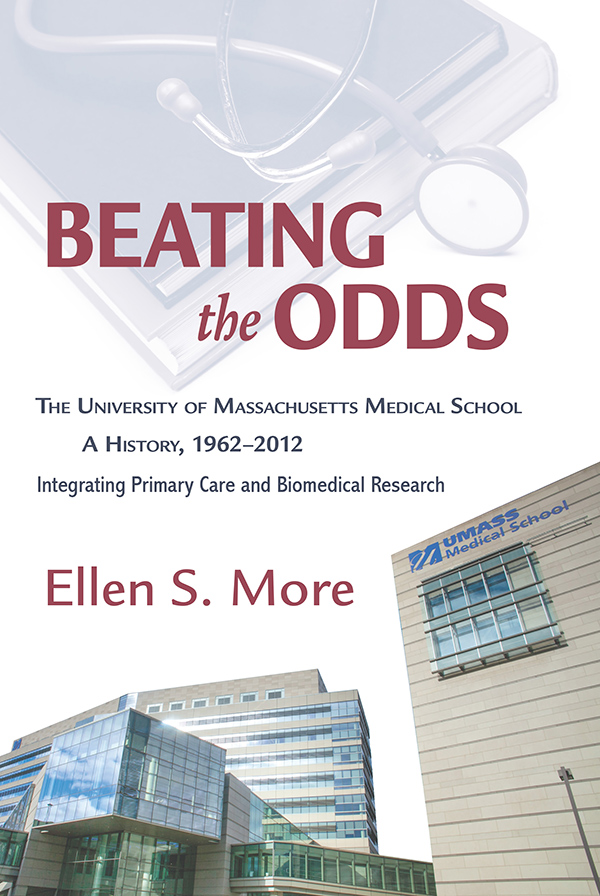SINCE ITS INCEPTION fifty years ago, the University of Massachusetts Medical School in Worcester, Massachusetts, has kept true to its original mission of training family doctors while defying the odds in becoming one of the nation’s leading centers of biomedical research. Attracting gifted faculty and students with a humane interest in medicine, the pairing has been robust, but not easily achieved. Ellen More’s Beating the Odds: The University of Massachusetts Medical School, A History is that rare institutional history which is candid, engaging, thought provoking and, rarest of all, very readable. Writing from the inside, More demonstrates unusual objectivity and frankness which make Beating the Odds an important book for anyone interested in the challenges of shaping a public institution in an administratively complex, technologically dynamic, and intensely competitive environment.
While external forces—politics, the regional economy, access to research funding, biomedical advances—have shaped the institution, More makes clear just how critical leadership—and, occasionally, the lack thereof—has been at critical junctures in the school’s history. The school’s commitment to primary care has never wavered, but trade-offs among medical education, patient care, and Nobel Prize-quality research have created strategic dilemmas and opportunities. Big and often contentious decisions have been made along the way, decisions made by people, a fact More never loses sight of as she traces the evolution of the school. It’s hard to imagine the fate of UMASS Medical School without the resilience, clear-headedness and, when it mattered most, trustworthiness of leaders across the institution. The past does not ordain the future, but it does shape the most likely options ahead. Beating the Odds offers a window into the challenges and opportunities facing the country in medical education and medicine more generally and deserves a readership far beyond the ever-dynamic, fifty-year-old medical school upstart.
Beating the Odds offers the reader an exceptionally detailed account of the myriad, and often competing, forces that shaped one of America’s most interesting academic medical centers—the University of Massachusetts. Conceived in the mid-20th century, the institution’s lengthy gestation, eventual birth and rapid maturation occurred during a particularly tumultuous time in medicine. Its history illustrates vividly the challenges of implementing a bold vision while balancing the interests of numerous and disparate stakeholders. What comes though most compellingly in this scholarly account is the critical importance of gifted, committed and tireless leadership. The author brings her intimate knowledge, not only of the stars of this dramatic story, but also of the countless members of the supporting cast. All of those—like myself—who lived though this period of UMass’s rise to prominence will enjoy this rich retelling of its many struggles and its notable triumphs.
—Jordan J. Cohen, M.D., President Emeritus, Association of American Medical Colleges
Ellen More has written a fascinating, insightful institutional history that exposes the core issue that all medical schools face: who does medical education serve, and how? A must read for anyone interested in medical or higher education in the U.S.
—Kenneth Ludmerer, M.D., Mabel Dorn Reeder Distinguished Professor of Medicine and History of Medicine Washington University School of Medicine
and author of Let Me Heal


Reviews
There are no reviews yet.